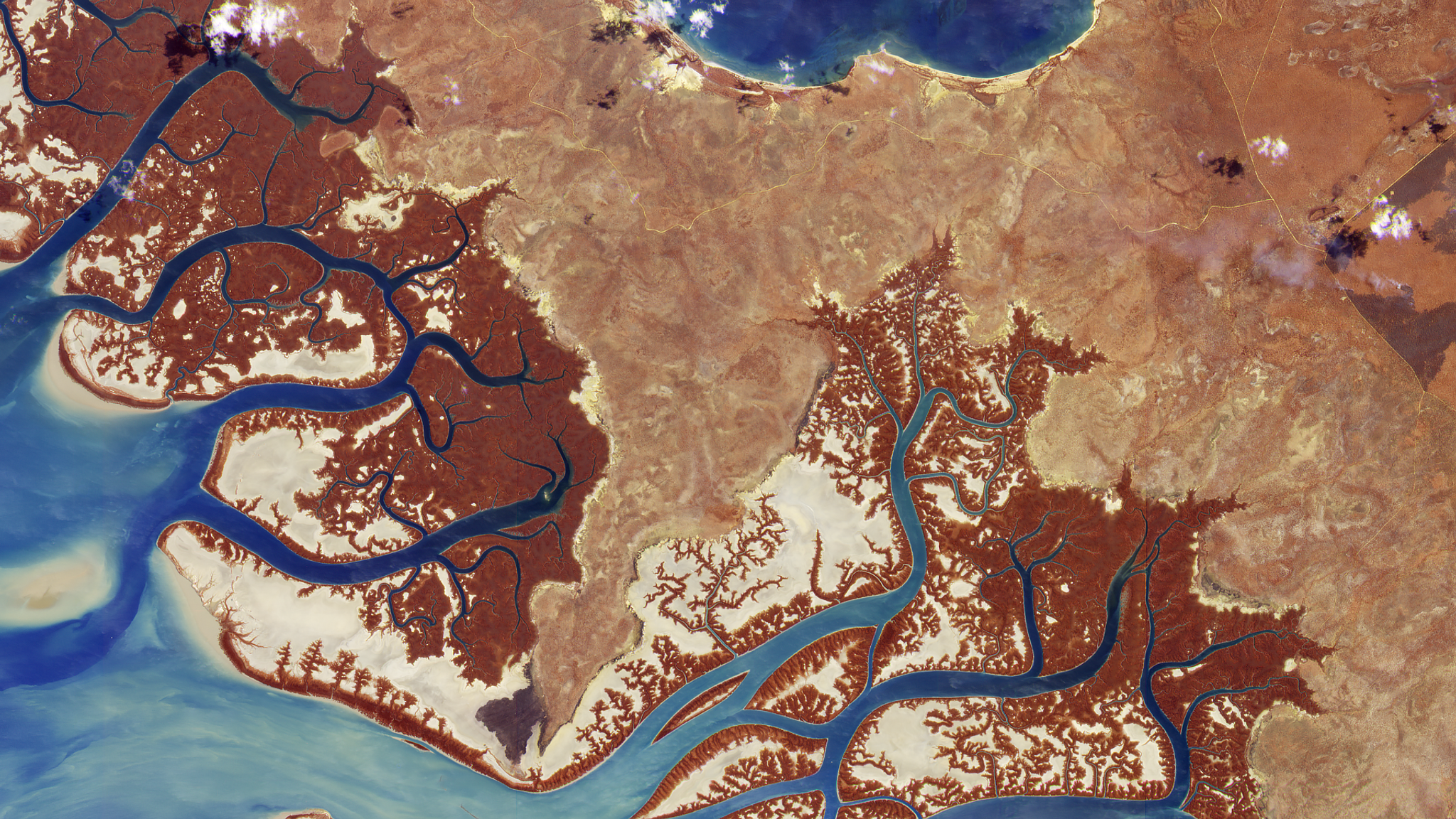The Sun Sets on a Successful Day at Explore 19

Next Generation PlanetScope includes more bands, which can help in the study of plant health. It also helps to unlock the potential for advanced analytics. // Garig Gunak Barlu National Park, Australia. September 25, 2019. © 2019, Planet Labs Inc. All Rights Reserved.
StoriesAt Planet, our motto is, “See change. Change the world,” and we certainly saw and heard some Earth-shaking conversations and talks at the Explore 19 conference today. In his opening keynote, Planet CEO Will Marshall made a series of exciting announcements, like how our Next-Generation Dove satellites will deliver more spectral bands, and that our SkySats can now deliver 50 cm data. And in our product keynote session, Planet Chief Strategy Officer Robbie Schingler, along with other Planeteers, announced a series of exciting updates for Planet’s products, including a new ordering experience, an innovative tasking capability, and new plugins that can strengthen GIS workflows through Planet integrations. Author, conservationist and Emmy-nominated host and producer Phillipe Cousteau dove deeply into the declining health of our oceans and coral reefs, explaining how Planet’s data is crucial to helping humankind make better decisions about protecting the Earth in the future. “Planet’s technology is truly revolutionary because it gives us that opportunity, for the first time, to actually monitor the health of the planet in real time,” Cousteau said during his guest keynote speech. “While it may be easy to imagine we are beyond the point of no return, my main message today is that there is hope.” Soon after, we listened to Planet co-founder and CSO Robbie Schingler have a fireside chat with The Honorable Sue Gordon, former deputy director of National Intelligence. They talked through many of the challenges that our Earth faces: like the need for transparency, trust in our institutions, the emergence of commercial satellite capabilities that were once only in the purview of governments, and how geospatial data forces us to face the facts. “What’s remarkable about geospatial data is that it just is,” Gordon said. “There are other sources of data that are open to interpretation … but [geospatial data] is a fact and you must deal with it.” She added that we have to act based on the data Planet provides, because it’s not enough to just know the facts. “We have to do,” she said. “We don’t just want to know.” Middlebury Institute professor and nuclear expert Jeffrey Lewis was on a thought-provoking panel about “always-on” Earth Observation (EO), which delved into how organizations are leveraging advancements in satellite imagery and associated datasets to shed light on happenings across the world. And investigative journalist Christoph Koettl of the New York Times and Allison Puccioni of the Center for International Security and Cooperation at Stanford University discussed how this wealth of data can empower people to promote greater transparency throughout our world. At the customer keynote panel, we saw industry experts come together to discuss trends in EO and what they mean for the future of a variety of verticals--from agriculture to government to analytics to energy. And Governor Gavin Newsom even stopped by in the afternoon to discuss how important it is for government leaders to act immediately to address global challenges, and how the immediacy of Planet’s data can be fundamentally useful for that purpose. “What frustrates you also frustrates folks in positions like mine … receiving some report that says everything we kind of already knew, but with old data that doesn’t meet the moment. And then [that data] collects dust, generates a headline--maybe a task force--and we meet to collect another annual report that does the same,” Newsom said. “What I love about [Planet] is that it’s promoting the ability to, in [near-real] time, at 10:30 every morning, collect data and make real what that data holds and what it promises.” We thank everyone who attended the conference today and all those who continue to explore the many uses of Planet’s data in the days to come.Are you using our data in an exciting and innovative way? We want to know about it! Feel free to reach out to us directly during Explore 19 by talking to a Planeteer, or send us an email at marketing@planet.com.

Ready to Get Started
Connect with a member of our Sales team. We'll help you find the right products and pricing for your needs

